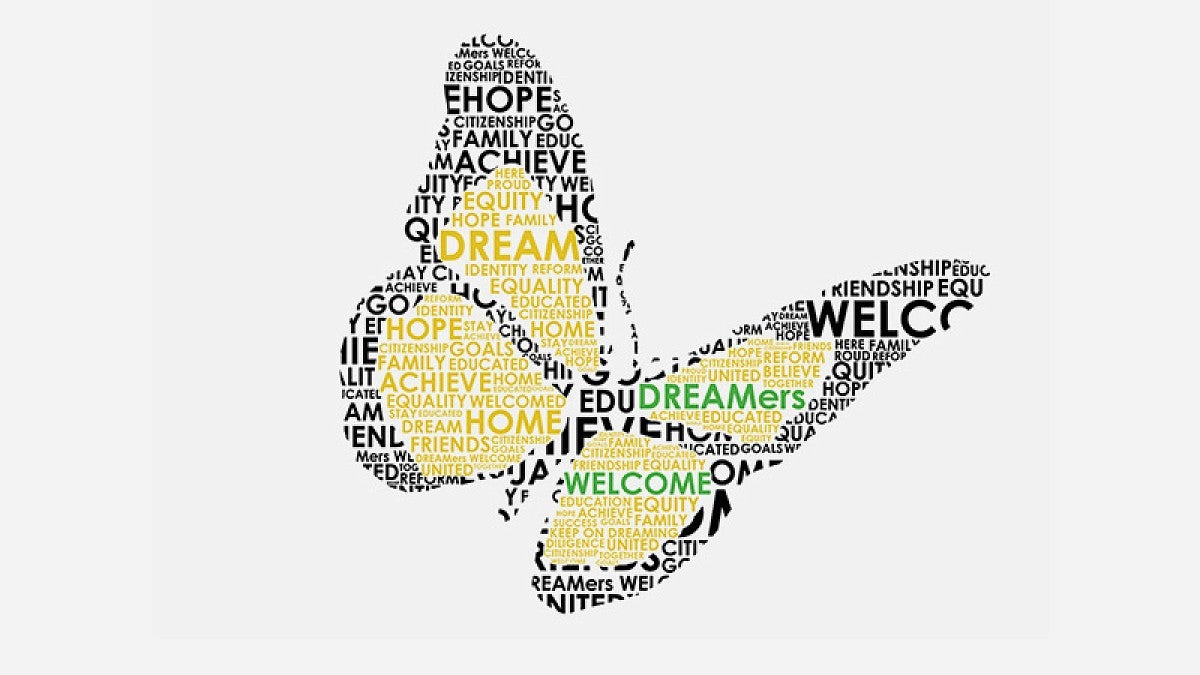The Supreme Court will hear arguments on the Deferred Action for Childhood Arrivals program in November, but the Dreamers Working Group at the University of Oregon isn’t waiting to take action.
Five years ago, the UO’s Dreamers Working Group was founded to help create resources on campus for those students. In fall 2018, Keith Swayne, a 1962 economics graduate, made a $25,000 donation toward a scholarship fund for student Dreamers, and then in fall 2018 he promised to make another $75,000 donation on the condition that the working group also raise money through community donations.
Less than a year later, Swayne fulfilled his donation promise and the first round of scholarships was awarded to Dreamer students in immediate need of emergency funds.
The fundraising hasn’t stopped since — as of now the Dreamer’s Scholarship Fund has raised $150,117 — and the working group is trying to set the foundation for a three-year funding plan. The plan launches this year, and the group hopes to raise $10,000 to $20,000 each year.
The second round of scholarships, this time for the full 2019-20 school year, already are being granted to Dreamers who demonstrate financial need, have overcome hardship and have a history of being good scholars. The scholarship is about enough to cover 11 credits a term for three terms, and priority is given to Dreamers who are close to completing their degrees and need help finishing out their last year.
Students at the UO are identified under the umbrella term “Dreamers” if they either have Deferred Action for Childhood Arrival status, qualify for tuition equity, are undocumented students or come from mixed-status households.
Because most Dreamers don’t qualify for federal financial aid and can’t fill out a Free Application for Federal Student Aid to demonstrate financial need, they struggle to find financial resources, and many end up paying for school entirely out of pocket. Students not eligible to complete the FAFSA are able to complete an Oregon Student Aid Application.
So far, 163 people have donated to the fundraiser.
Justine Carpenter, the Dreamer student contact in the Office of the Dean of Students who helped create the scholarship, said many of the donations are from people in the local community.
“We’ve had tremendous response from faculty and staff, and even students and alumni, who see the campaign and just want to give,” she said. “They see the students and how much they bring to campus — how much passion, drive, ability they bring — and they want to help. And this is one of the ways they can.”
While funding is an important part of the work group’s plan, members know that Dreamers face more than just financial hardships and are looking for ways to provide a more holistic support system. That is especially important as they try to prepare for the upcoming Supreme Court ruling.
Not knowing what the court will decide, the group is echoing messages from immigrant rights organizations that students whose DACA status will expire in 2020 consult with a legal service provider about renewing now, in case the option to renew won’t be available in the future. The UO provides students access to an immigration attorney, specifically for help with their DACA status. In the future, the group would like to expand access to legal immigration support for students and their families.
Carpenter said more students are affected by immigration than people realize. The student’s own citizenship status may be on the line, or it could be a close family member. Many students can’t talk about their immigration status or their families, which can leave them feeling isolated.
One way the UO tries to support those students is with Dreamer ally training. The four-hour course was developed by Julie Weise in 2017 to train UO faculty and staff members how to properly support Dreamers.
The course is meant to help faculty members understand what Dreamers are going through so they are sensitive to the needs of students. At the end of the training, participants are put in small groups to work with a working group member to develop ways to support Dreamers in their own departments.
So far, 404 Dreamer allies have been trained across 86 campus units and departments.
But the trainings are only part of how the entire campus is getting involved to make the UO a more welcoming environment for Dreamers. The University Counseling Center has also hired two Latinx and undocumented student specialists who support Dreamer students, and the Center for Multicultural Academic Excellence supports Dreamer student retention and works to set students up for success at the UO and beyond.
On that note, Carpenter said that it’s important Dreamers know they have access to all of the student resources at the UO, including the University Health Center, Career Center and financial aid office.
—By Patience Greene, University Communications


